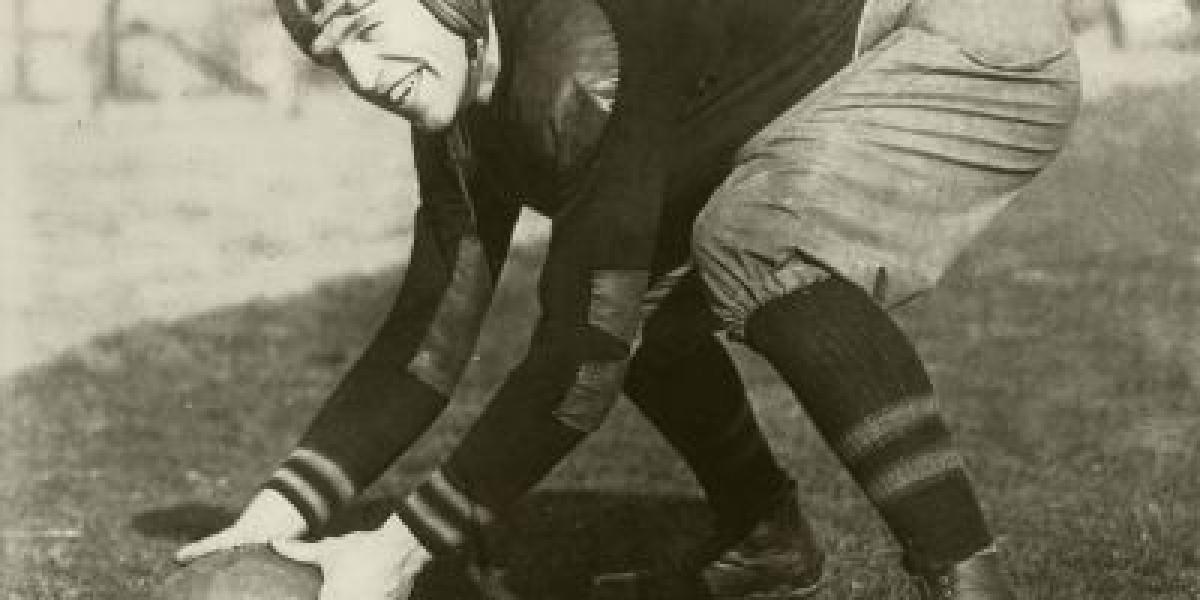John McEwan carved a significant place in football history, both as a player and a coach. Playing center from 1913-1916, he was a three-time All-American, earning consensus honors in 1914. McEwan was known for his toughness and leadership, captaining the 1916 Black Knights squad. He was a key part of the dominant Army teams, contributing to their success during that era.
College Career
Football Legacy
John McEwan's football legacy is defined by his excellence in both playing and coaching. His All-American status at Michigan solidified his place as a standout player of his time. His successful coaching career, particularly at Oregon, further cemented his reputation as a respected leader and tactician. McEwan's contributions to the game, both on the field and the sideline, earned him a well-deserved place in the College Football Hall of Fame.
Following his graduation, McEwan embarked on a distinguished coaching career. He began at his alma mater, serving as an assistant coach before taking the head coaching reins at Army from 1923 to 1925. He later led the University of Oregon to their first undefeated season and a share of the Pacific Coast Conference title in 1929. His coaching tenure also included a stint at Holy Cross before he transitioned to the professional level. McEwan coached the Brooklyn Dodgers of the NFL for two seasons, from 1933 to 1934.
McEwan served as the head football coach at West Point (1923–1925), the University of Oregon[1] (1926–1929), and the College of the Holy Cross (1930–1932), compiling a career college football record of 59–23–6. He also coached at the professional level for the Brooklyn Dodgers of the National Football League (NFL) from 1933 to 1934.
Road to the Pro Game
John McEwan's foray into professional football came later in his career after establishing himself as a successful college coach. In 1933, he took the helm of the Brooklyn Dodgers of the NFL. Although his tenure with the Dodgers was relatively short, lasting only two seasons (1933-1934), it marked a significant chapter in his diverse football career.
During his time with the Dodgers, McEwan gained experience in the professional realm, navigating the challenges of coaching in the still-developing NFL. While his record with the team was not spectacular, it provided him with valuable insights into the professional game, adding another dimension to his already impressive football resume.
Though brief, McEwan's time with the Dodgers contributes to the overall narrative of his football career, demonstrating his willingness to explore different facets of the sport and solidifying his reputation as a versatile and knowledgeable figure in the world of American football.
John McEwan was honed into the College Football Hall of Fame in 1962 after the National Football Foundation tallied their votes.
Accolades, Awards and Career Stats
✦ Consensus All-American (1914)
✦ Three-time All-American (1914, 1915, 1916)
✦ Captain, University of Michigan Football Team (1916)
✦ Led Oregon to an undefeated season and share of the PCC Championship (1929)
✦ College Football Hall of Fame Inductee (1962)
Playing career
✦ 1913–1916 Army
✦ Position(s) Center
Coaching career (HC unless noted)
✦ 1919–1922 Army (assistant)
✦ 1923–1925 Army
✦ 1926–1929 Oregon
✦ 1930–1932 Holy Cross
✦ 1933–1934 Brooklyn Dodgers
Head coaching record
✦ Overall 59–23–6 (college)
9–11–1 (NFL)
Accomplishments and honors
Championships
✦ 1 PCC (1929)
Awards
✦ Consensus All-American (1914)
✦ Second-team All-American (1916)
✦ Third-team All-American (1915)
✦ College Football Hall of Fame
Inducted in 1962
John McEwan. (2024, December 18). In Wikipedia. https://en.wikipedia.org/wiki/John_McEwan




